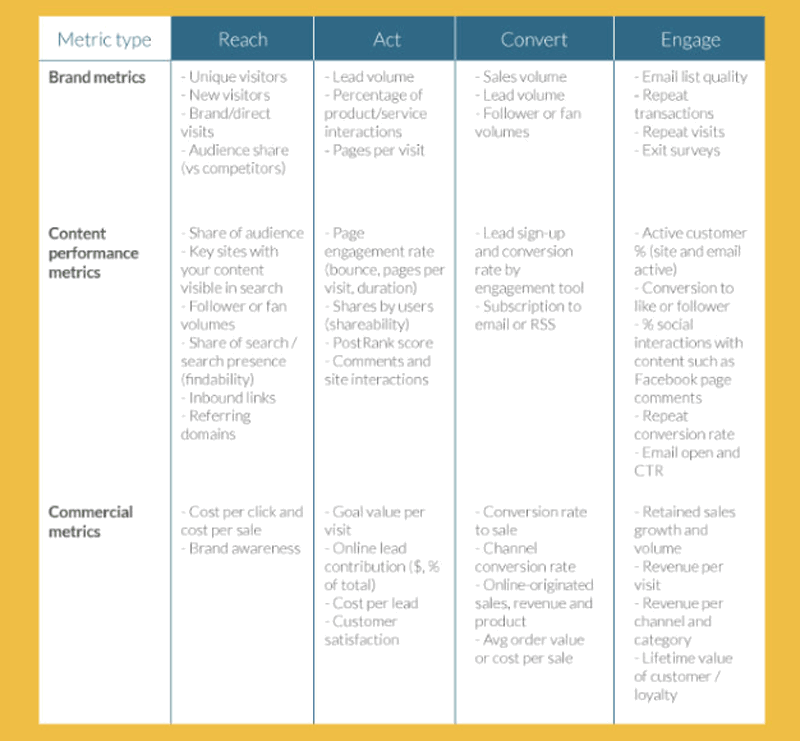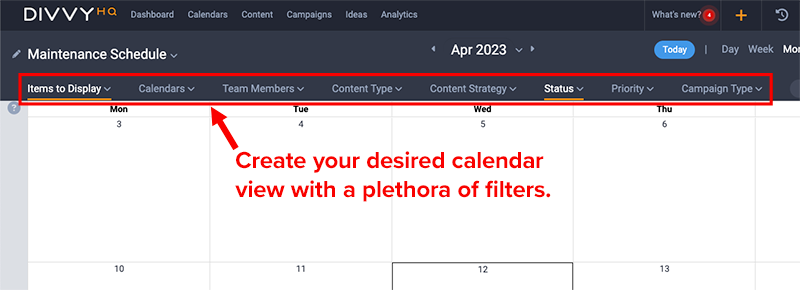Content marketing may have a better return on investment than traditional advertising, but as many as 51% of marketers don’t understand how well their content performs. To make the most of your budget and team efforts, you need your content to work for you.
Performing a content audit provides insight into which assets are relevant and effective, their alignment to your current strategy, and what to focus on going forward. Conducting an annual assessment is a great idea, but if your content isn’t performing up to snuff, waiting a year between audits won’t do any good for your ROI.
How do you know when to divert some of your team’s energy and resources into performing an audit? Let’s review what an audit is and go over five telltale signs that it’s time to conduct one.
What Exactly Is a Content Audit?
A content audit is an organized, strategic analysis of your content inventory. At a minimum, your audit should review your entire website content library, though some companies also choose to expand their audit to other content channels and formats, like social media channels and email campaigns.
If you commit time, money, and team effort to plan, produce, and publish a content asset, you should know whether it’s working for you. An audit might include analyses of the following:
- Blog posts
- Landing pages
- Webpages
- Videos
- Infographics
During an audit, you examine various attributes and performance metrics, like those shown below, for each piece of content. Ultimately, you want to determine what to keep, remove, or update based on how well your content addresses audience pain points and measures up against the competition. You can also identify content gaps and trends to strengthen your content strategy further.
Image Source: Content Marketing Institute
How Do You Know When to Perform an Audit?
Content audits can be quite labor- and time-intensive. However, the better tools that you have, and the more often you do them, the easier it gets.
If you’re overdue for an audit, you don’t want to delay the process further. Here are five signs it’s time to hop to it.
1. You’ve Never Conducted a Content Audit
Content performance analytics are critical to understanding whether your strategy is hitting home runs, or foul balls. You won’t truly know whether your content is effective without measuring performance. If your team is new to content audits, chances are you are long overdue for one.
Likewise, if it’s been more than a year since your last audit, it’s time to schedule another one as soon as possible. A lot can change in a year, so we recommend assessing performance at least annually, though two to four times a year is better.
Performing your first audit is overwhelming; Divvy’s content audit template helps you understand the process and sets you up to work through it.
2. Your Rankings Are Slipping
Are your competitors outranking you where they weren’t before? When pages and posts begin slipping lower on search engine results pages, a content audit may be able to uncover the reasons why.
If new content consistently underperforms compared to other companies, it might be missing the mark with your target audience. Changes in SERPS rankings indicate that you might need to revisit your strategy. Before you start making changes there, you need to understand what isn’t working.
We simplify the audit process with our content analytics tools and dashboards. Pull data from multiple sources to assess keyword, asset, and topic performance across channels and audience segments and get clarity on why your rankings dropped.
3. Traffic Patterns Have Changed
Any time you detect a significant change in website traffic patterns, you should take note. While the most concerning variation is a drop in organic page visits, dramatic positive pattern changes also signal a potential change in what your audience needs from you.
You may notice that blog engagement declines or unsubscribes increase and new subscriptions decrease. On the other hand, you might see that a particular set of related blog posts is getting more hits than you expected, indicating new trends or customer pain points.
In each of these situations, traffic patterns on your website suggest that you might need to analyze your assets to determine what adjustments you need to make to ensure an effective strategy.
4. You Haven’t Updated or Removed Old Content in a Long While
Even if you strive to keep your content evergreen, old content can weigh you down in the rankings. If your audience’s behaviors, likes, or needs have changed, timeless content may no longer serve its purpose.
However, you don’t want to randomly delete pages when you suspect they have passed their expiration date. You may just need to breathe new life into some of them with updated information, new visuals, interactive elements, or keywords.
Divvy’s content operations platform (securely) houses all your content in the cloud. Your metadata lives with your content, simplifying your audit with readily accessible information needed for key metrics and making it easier to determine what content to revise and what to cut. Divvy also comes equipped with maintenance dates and reminders, so you can set up an ongoing maintenance schedule.
Screenshot: DivvyHQ Calendar Filters & Maintenance Schedule View
5. You Struggle to Fill Your Content Calendar
Coming up with new content ideas is hard, so if your team struggles with filling up the content calendar, an audit is in order. Analyzing your current library provides insight into topics your team could flesh out a little more.
Ones that do well can launch ideas for content related to the same subject. Sometimes, all people need is an idea kernel to stimulate creativity. Your team can also take well-performing assets and repurpose them.
When your audit reveals that an asset didn’t quite do its job but still has potential, your team can revise it to strengthen substance, writing, or SEO. Uncovering content gaps provides ample fuel for new content.
We structured our content calendar so you can filter according to any content parameters you care to set. It’s easy to see where your content coverage breaks down and where it’s saturated, signaling what kind of new content you need and providing a focal point for an audit.
Simplify Your Content Audit
We know how intimidating an audit can be. If you’re overdue for one, it’s a significant undertaking. We’ve got your back. We can’t do the job for you, but our platform and tools help you simplify and streamline the process. From our content audit template to our easy-to-use analytics, we remove the chaos surrounding an overdue audit. Request a demo to see how Divvy works.


